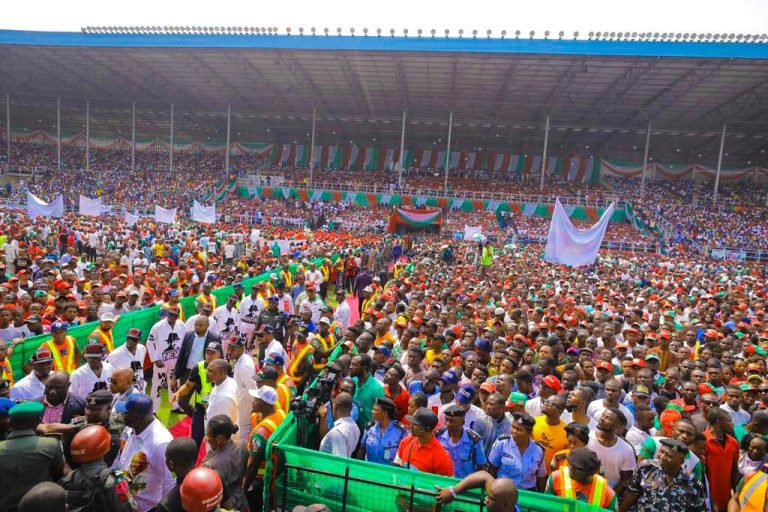
In the dynamic landscape of Nigerian politics, the role of party manifestos in shaping elections cannot be overstated. These documents, essentially a declaration of intent by political parties, outline their proposed policies and commitments to address critical issues. The political parties, particularly the dominant ones like the All Progressives Congress (APC), the People’s Democratic Party (PDP), and the Labour Party (LP), craft their manifestos with the aim of attracting voters and securing their trust. However, the question that arises is, how sensitive are these party manifestos to the real issues and needs of the Nigerian electorate?
This piece delves into this critical question, drawing upon extensive research conducted by the Centre for Research on Development of African Media, Governance and Society, and the PANSOR Development Initiative, Nigeria that meticulously analyzed the manifestos and campaign strategies of the leading political parties in Nigeria during the 2023 presidential election campaigns. Moreover, we adopt a unique perspective by integrating Karl Marx’s political economy approach to shed light on the intricate relationship between political actors and voters concerning the creation of surplus and exchange value through manifestos.
Manifestos: The Social Contracts of Nigerian Politics
At its core, presenting a manifesto is akin to entering into a social contract between political parties and the electorate. These documents serve as a means for candidates to acquire the consent and votes of the voters. It is within the content and commitments of these manifestos that the intricate dance of surplus and exchange value takes place.
Marx’s Surplus Value Analytical Framework
To understand this dynamic, we turn to Karl Marx’s surplus value analytical framework. While Marx did not explicitly apply this framework to the realm of politics, we find its relevance in the relationship between political actors and voters. At the heart of Marx’s theory is the idea that capitalists generate capital through the exploitation of labor time. In the context of politics, political parties aim to generate support, symbolized by votes, by articulating policies and promises within their manifestos.
Analyzing Policy and Campaign Promises
Our analysis delves into the policies and campaign promises put forth by political parties, focusing on the creation and redistribution of public goods among citizens. These policies form the bedrock of their appeal to voters. They are the building blocks of the exchange value that candidates hope to gain in return for their surplus value efforts.
Key Issues in Nigerian Party Manifestos
The research conducted by the two organizations identified a range of critical policy and campaign issues present in the manifestos of the dominant political parties in Nigeria. These issues include:
Economy
Healthcare
Security
Education
Infrastructure (power, ICT, transportation, housing)
Agriculture
Employment (youth empowerment and entrepreneurship, women empowerment)
Good Governance (judicial reform, federalism/decentralization, unity, restructuring)
Foreign Policy
Social Programs (sports, entertainment and culture, social programs)
Environment (climate change)
Each of these issues represents an opportunity for political parties to articulate their vision and demonstrate their commitment to addressing the concerns of the electorate. By doing so, they aim to create surplus value – the trust and belief among voters that they are the party best suited to meet these pressing needs.
The sensitivity of party manifestos to voters’ issues and needs in Nigeria is a complex interplay of political strategy, economic theory, and the quest for power. Political parties, guided by the principles of surplus and exchange value, craft their manifestos to create trust and secure votes. However, the true measure of their success lies in the implementation of these promises and their ability to genuinely address the concerns of the Nigerian populace.
As we continue to observe the evolution of Nigerian politics, it becomes clear that manifestos are not mere documents but powerful tools that shape the destiny of the nation. The challenge remains for voters to critically evaluate these manifestos, holding political parties, especially the party that won the election, accountable for its promises and ensuring that the exchange of value is reciprocal and benefits the greater good of Nigerian society.

